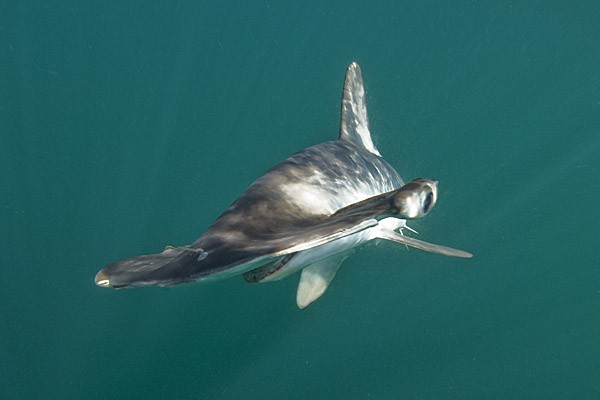Costa Rica's Shark Conservation Record is a "Mixed Bag", Observers Say

When it comes to shark conservation, Costa Rica rarely shies away from the spotlight. In February, conservationists applauded as the country made headlines at the February meeting of the Memorandum of Understanding on the Conservation of Migratory Sharks (MOS2), where international conservation measures spearheaded by Costa Rican delegates were formally ratified. But just a week before the meeting, Costa Rica’s president, Luis Guillermo Solís, was named Shark Enemy of the Year for his administration’s conservation policies.
If this back and forth coverage seems paradoxical, it’s because it is, but according to international shark experts, so is Costa Rica’s shark conservation record.
“It’s a mixed bag,” Sonja Fordham, president of the Washington-based nonprofit Shark Advocates International, told The Tico Times at the conservation meeting in February. “Costa Rica has probably done more than most other countries, but they still have these basic problems with the way they manage their fisheries.”
Fordham said Costa Rica has been a regional leader in cracking down on shark finning, a practice where fishers cut off the fins of live sharks and throw them back into the ocean to die. The fishing method is designed to save room in the hulls of fishing boats for the more valuable fins but results in the killing of an unsustainable number of sharks.
Costa Rica strengthened its ban on shark finning in 2012 and continues to support stricter regulations internationally.
At the same time, Fordham pointed out Costa Rica’s blockage of shark protections at last year’s meeting of the Inter-American Tropical Tuna Commission, which regulates fisheries in the eastern Pacific Ocean. The resolution Costa Rica unilaterally blocked would have set maximum catch numbers for threatened hammerhead and silky sharks.
“We are used to having these resolutions blocked by Japan, Korea or China,” Fordham said. “For the wider NGO community, this was very disappointing.”
Nicholas Dulvy, co-chair of the International Union for the Conservation of Nature’s shark specialist group, expressed similar concerns.
“On one hand, they take a huge step to protect sharks internationally, but then they suppress very basic principles of fisheries management,” he said. “The right hand is doing one thing while the left does another.”
This political flip-flopping has been on full display since Solís’ inauguration. Though Costa Rican delegates have continued to push for additional international protections for sharks, the government also promised fishing groups last year that it would not propose or support restrictions on any commercially viable shark species.
Both Dulvy and Fordham noted that Costa Rica is not alone in its contradictory approach to shark conservation.
“It’s very attractive for governments to not do anything and to provide unfettered access to fishing resources,” Dulvy said. “It is a challenge to get to sustainability, but if things stay the way they are now, there are going to be huge social problems.”
Photo courtesy of Elasmodiver



